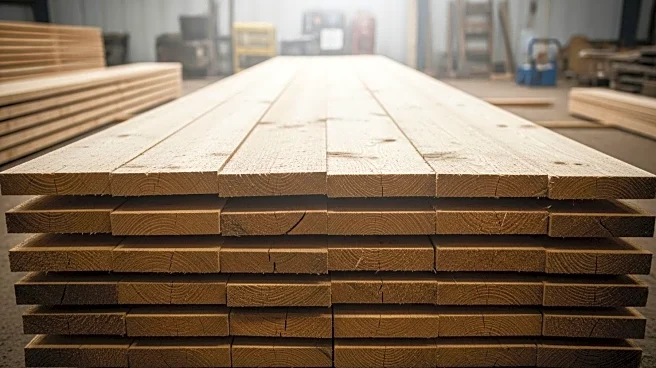What is the story about?
What's Happening?
President Trump has announced a 10% tariff on softwood lumber and timber products, set to take effect on October 14. This move is expected to impact the U.S. construction industry, which heavily relies on imported lumber for building frames, roofing, decking, and structural beams. The tariff is likely to affect imports primarily from Brazil and Northern Europe, which account for a significant portion of the U.S.'s lumber supply. The announcement has already led to a surge in freight rates on the HS2 shipping route, as importers rush to bring in shipments before the tariff is implemented.
Why It's Important?
The imposition of tariffs on softwood lumber is significant for the U.S. construction industry, which depends on these imports for various building applications. The tariff could lead to increased costs for construction materials, potentially affecting housing prices and the broader real estate market. Additionally, the logistics sector may face challenges as it adapts to changes in import patterns. The tariff could also strain trade relations with countries like Germany, which supplies a large portion of the U.S.'s lumber imports. The move reflects broader protectionist policies that could have long-term implications for international trade dynamics.
What's Next?
As the tariff takes effect, stakeholders in the construction and logistics sectors will need to adjust their strategies. Importers may seek alternative sources or negotiate new terms with existing suppliers to mitigate cost increases. The U.S. government may face pressure from industry groups to reconsider or modify the tariff policy. Additionally, countries affected by the tariff may respond with their own trade measures, potentially leading to further shifts in global trade patterns. The situation will require close monitoring to assess the full impact on the U.S. economy and international relations.
















